ARTICLES > THRIVE
SPECIAL REPORT: COELIAC DISEASE AND FERTILITY
Undiagnosed or untreated coeliac disease has been connected to infertility: if starting a family is part of your life plan and you're struggling, here's what you need to know.
By Angela Tufvesson
Coeliac disease is a complicated condition, and its effects can have a serious and surprising impact on other areas of your health. Along with type 1 diabetes, depression and osteoporosis, evidence suggests that undiagnosed or untreated coeliac disease may be an underlying cause of infertility. The good news is that there’s an effective antidote that reduces your risk of infertility to essentially the same as the general population. Even better, it’s likely to be something you’re already doing: eating a gluten-free diet.
PROBING THE IMPACT ON FERTILITY
Experts don’t understand exactly why undiagnosed or untreated coeliac disease affects fertility. One theory suggests you’re more likely to be deficient in nutrients the body needs for reproduction, such as folic acid, iron, zinc and selenium.
“When the villi of the small intestine are damaged by inflammation, which is caused by gluten consumption in people with coeliac disease, it can impact the absorption of key vitamins and minerals,” explains accredited practising dietitian Stefanie Valakas from The Dietologist, experts in fertility nutrition.
“There’s also some evidence to show that not everyone reaches villi ‘normality’ with coeliac disease, so potentially people aren’t always getting the best nutrients for fertility and pregnancy.”
These nutrient deficiencies may be compounded by a shorter fertility window for women with coeliac disease, says Dr Joseph Sgroi, an obstetrician, gynaecologist and fertility specialist based at Epworth Freemasons and Melbourne IVF.
“Coeliac disease predisposes a later onset of commencing your periods, and there can also be earlier menopause. Some women will also have an absence of periods,” he says.
For men, Dr Sgroi says coeliac disease can be associated with lower numbers of “normal-looking” sperm and sperm that swim in a forward direction, both of which can impact fertility. “
The other thing that coeliac disease produces is a level of what’s termed androgen resistance or testosterone resistance,” he says. “Testosterone is particularly important for the production of sperm, so if you’re resistant to that testosterone it can sometimes lead to poor sperm production.”
“The mere fact that you’re addressing the issue is correcting for a lot of the fertility issues.”
– Dr Joseph Sgroi
SCREENING THE AGENDA
People with coeliac disease who follow a gluten-free diet don’t appear to be at greater risk of fertility problems than those who don’t have the condition.
“Overall fertility rates are, generally speaking, equal to the background population,” Dr Sgroi says. “The mere fact that you’re addressing the issue is correcting for a lot of the fertility issues.”
Many experts recommend screening for coeliac disease if you have unexplained fertility problems, even if there are no other symptoms present.
“With my patients who have longstanding infertility, I’m trying to rule out everything and anything to maximise the chances that they’ll be able to conceive in the future. So screening for these patients is important,” Dr Sgroi says.
Given that far more rare conditions are screened before and during pregnancy, Valakas says, screening for coeliac disease “should be on the agenda for those who are trying to conceive and struggling with fertility concerns or are faced with the devastation of recurrent pregnancy loss”.
Even if you’ve been diagnosed with coeliac disease and already follow a gluten-free diet, she recommends checking in with your doctor or dietitian before trying for a baby. “The issue we often see is an assumption that you can proceed as normal with growing your family,” Valakas says. “In some cases, for example, more folic acid may be required to mitigate the risk of malabsorption. Given how critical folic acid is in the prevention of neural tube defects in pregnancy, this isn’t a step you want to skip
Untreated or undiagnosed coeliac disease may contribute to a deficiency in nutrients the body needs for reproduction, such as folic acid, iron, zinc and selenium.
-

CASE STUDY: HELEN TZOUGANATOS
“I WAS LUCKY THE DOCTOR CAUGHT IT”
Gluten-free cookbook author Helen Tzouganatos was diagnosed with coeliac disease while undergoing IVF treatment. Because her symptoms of fatigue and stomach cramping were common complaints, it was previously missed. “But with my low iron and anaemia, this raised red flags for my IVF doctor,” she says.
Helen feels lucky that her doctor was “very tuned in”, but it took at least five doctors to get her to that point. Helen is now a mother of three.
“I was told that it would take five years for the damage to be repaired after going on a strict gluten-free diet,” she says. “And it was exactly five years later that I fell pregnant naturally with my third child.”
Learning the link between her fertility struggles and coeliac disease made her wonder if other women in her family were also affected. “There is coeliac disease on my father’s side, and I discovered two cousins in Greece could never fall pregnant. They’re older and now in their 60s, but nobody picked it up, so their opportunity passed,” she says.
“When I was going through my fertility struggle I didn’t want to talk about it. You wonder what’s wrong with you,” she says. “But it becomes easier to talk about – I want to share my story and help others.”
DID YOU KNOW?
People facing fertility challenges should not restrict gluten until coeliac disease has been excluded – this ensures the tests are effective and avoids diagnosis delays.
WHAT TO EAT FOR FERTILITY
Going gluten-free is a given when you have coeliac gabi elgood disease, but it’s not the only diet-related change you can make to improve your fertility. Here are some tips from two fertility dietitians: Stefanie Valakas and Sally Marchini of Marchini Nutrition.
Eat antioxidant-rich fruits and vegetables
“They provide dietary fibre and vitamin C, and each colour provides a wide range of antioxidants like polyphenols, which help to protect the sperm and egg from inflammation,” Valakas says.
Include green leafy vegetables for folate
“This supports healthy cell division, sperm health and healthy neural tube formation in the earliest parts of pregnancy,” Valakas says.
Reduce processed foods
Some gluten-free foods, like bread, don’t provide the same nutritional quality as the wheat-based version, so it’s important to look at your diet as a whole and make the most nutritious choices you can,” Marchini says. “Just because a food is gluten-free doesn’t mean it’s good for you.”
Enjoy fish and seafood
“Couples who eat seafood twice a week have higher rates of pregnancy,” Valakas says. “Omega-3 fatty acids may be at play here, alongside other key nutrients like zinc and selenium.”
Add healthy fats to your diet
“These include extra virgin olive oil, nuts and seeds, and avocado,” Valakas says. “Reproductive hormones like oestrogen, progesterone and testosterone need fats to be constructed, and research suggests this is a key dietary change to improve fertility health in women and men.”
-
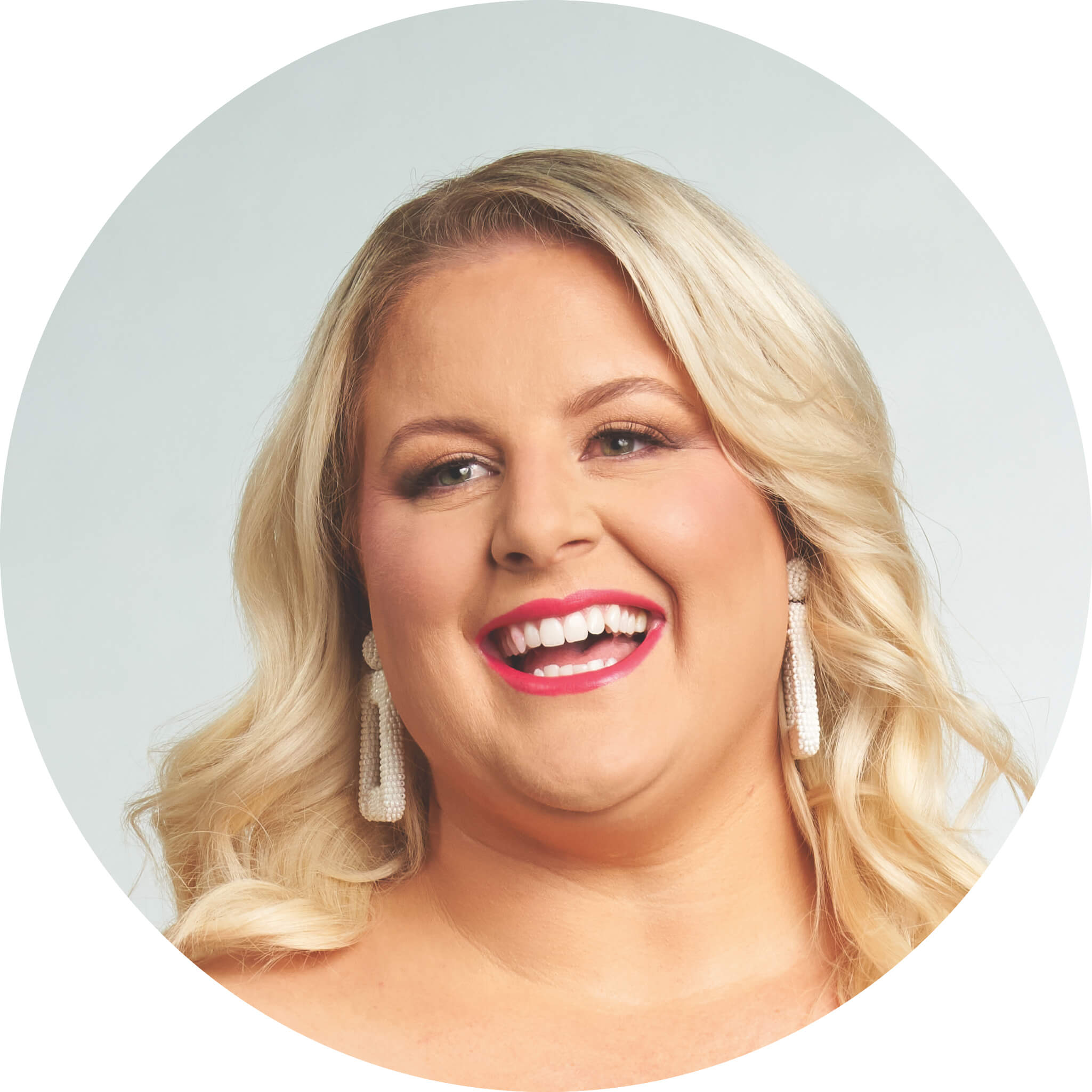
CASE STUDY: GABI ELGOOD
“A STRICTER DIET HELPED ME CONCEIVE”
For Gabi Elgood, switching to a strictly gluten-free diet after struggling with fertility issues for several years “had a huge effect on being able to conceive”.
The Canberra-based radio announcer, who is now expecting her first baby, says she had been avoiding gluten for almost 10 years – but not strictly. “I was a little relaxed with my gluten-free diet, especially when I would eat out or if I’d been drinking,” she says.
After being diagnosed by her doctor, having a conversation about the potential effects on fertility with a nutritionist who specialises in coeliac disease “scared me straight”, says Gabi. She changed her diet and began reading up on the relationship between coeliac disease and fertility.
“It’s been probably two years now that I’ve been very, very strict with my diet, and I’ve also been on medication to regulate my ovulation,” Gabi says. “I’m now due to have a baby in a couple of weeks.”
READ THIS NEXT
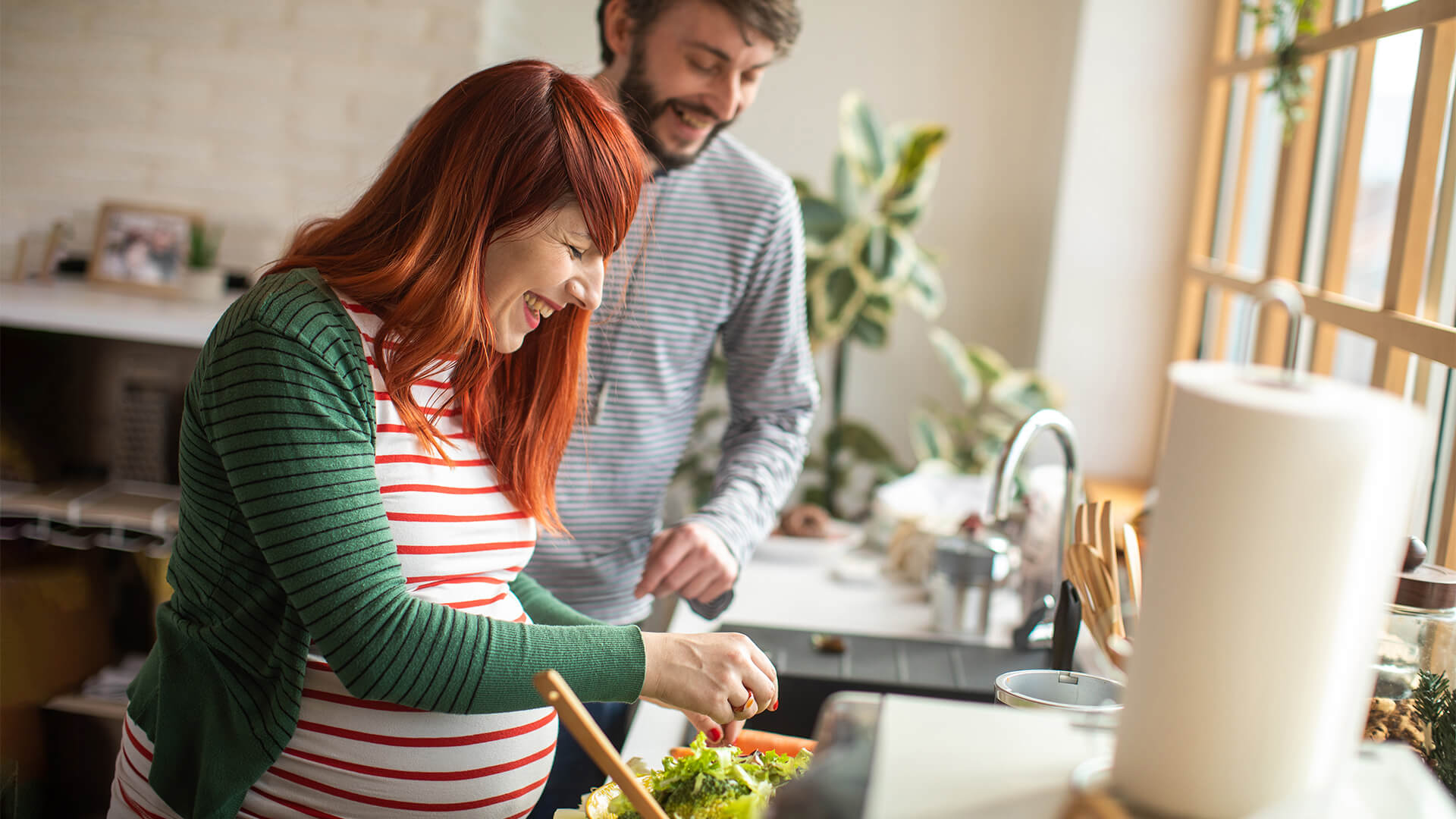
5 ESSENTIAL LESSONS ON FERTILITY WHEN YOU LIVE GLUTEN FREE
Does coeliac disease affect fertility? Is there a gluten-free diet for fertility? Stefanie Valakis of The Dietologist shares what you need to know.
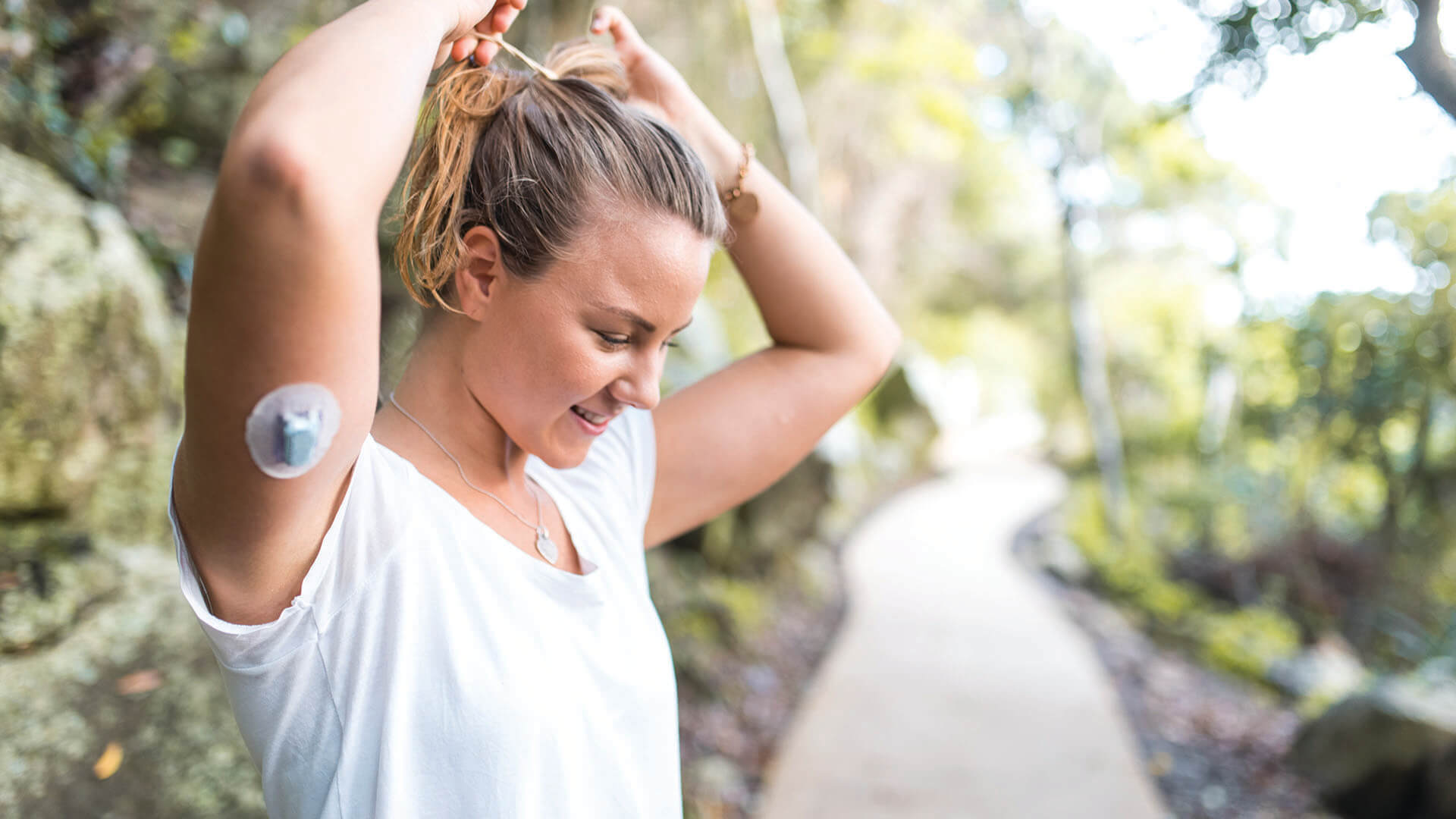
DIABETES AND COELIAC DISEASE: WHAT’S THE LINK?
Did you know that if you have Type 1 diabetes, you have an increased risk of coeliac disease? We talk about managing these conditions together.

FIVE STRESS-BUSTING STRATEGIES FROM A PSYCHOLOGIST
Living with coeliac disease adds to the complexities of life so it’s important to manage stress. We’re working with these simple but effective tips.
See more




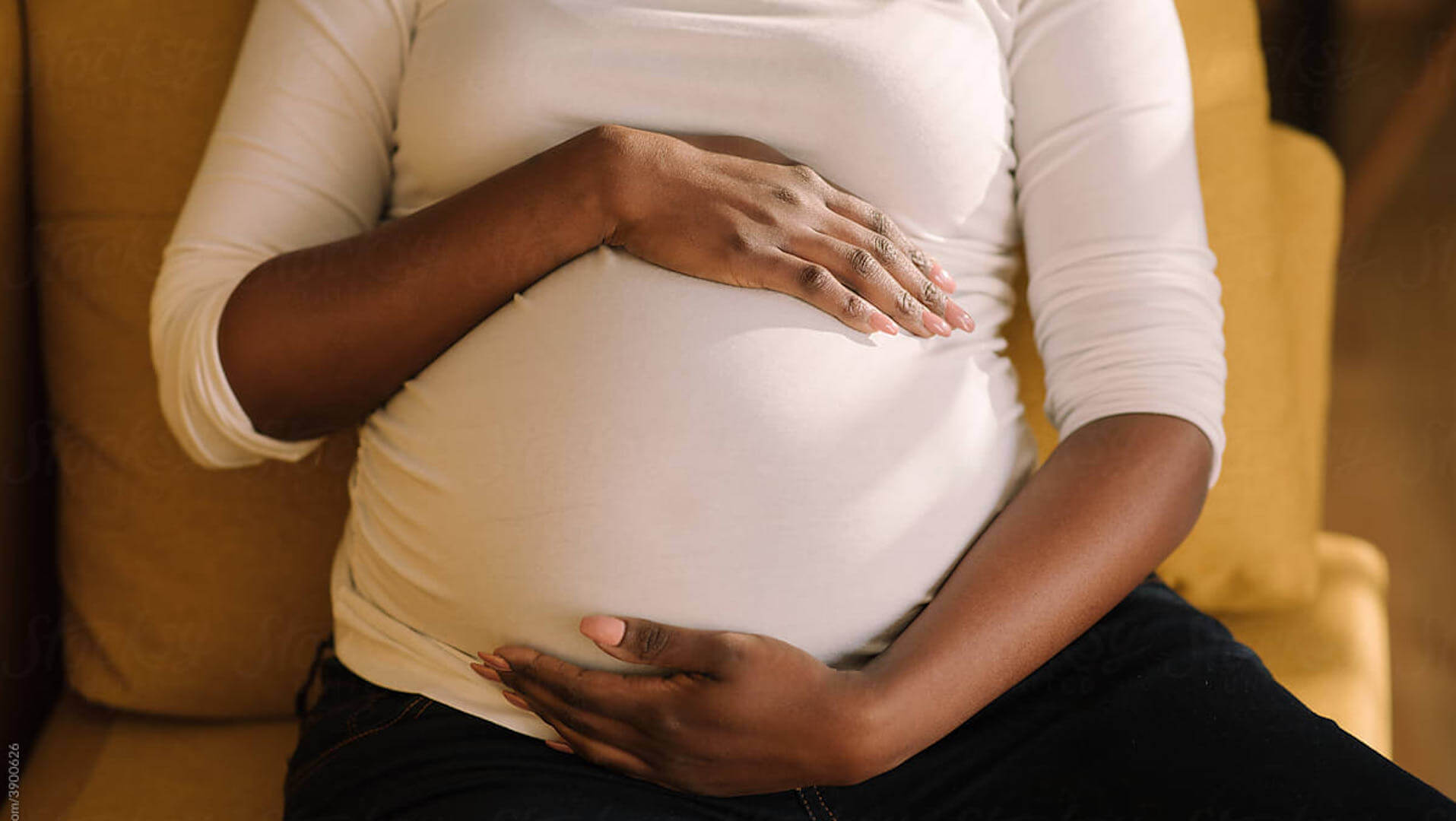




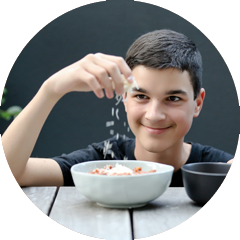




The same thing happened with myself, we were about to go down the IVF path and it was Coeliac Awareness Week 25 years ago and I heard on the radio (3aw) that’s women with coeliac can struggle with infertility.
I was diagnosed at 18months old with CD but my mother “thought” you grew out of it.. so long story short, I went down the path of re diagnosis and although my doctor said let you body heal before trying to conceive I was a bit sceptical and didn’t take any precautions and with in 3 months I was pregnant!
My siblings were also tested and my older sister who could “fall pregnant” but would sadly miscarry was also diagnosed.
I have no doubt gluten affected is in our fertility issues…